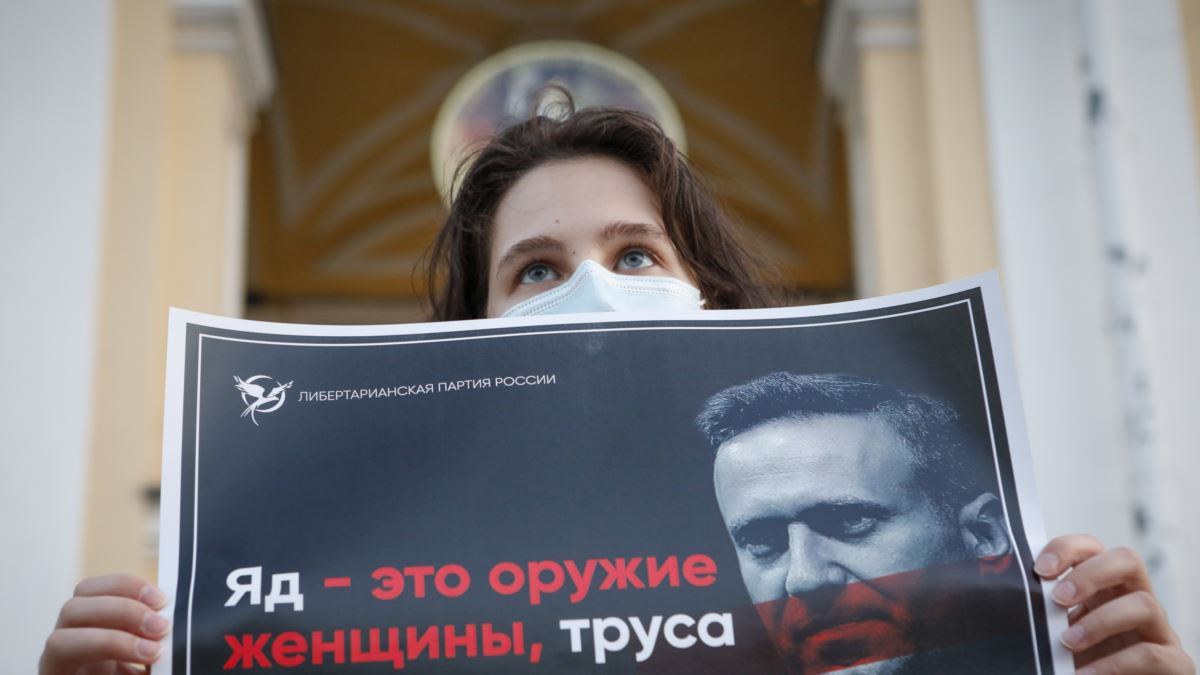

Russians are expected to take to the streets nationwide on January 23 in support of opposition politician Aleksei Navalny in a move to pressure the Kremlin to order his release after he was jailed upon his return to Moscow last weekend.
Ahead of the coordinated action in at least 65 cities and towns, Russian authorities have detained several Navalny allies and warned social media platforms to pull down posts calling on people to attend the “unsanctioned” rallies or face hefty fines.
The protests are a high-stakes test of Navalny’s support in the depths of a Russian winter during a pandemic, pitting outrage over the Kremlin critic’s treatment following months of recovery in Germany after being poisoned with a military grade chemical agent against how much of a threat President Vladimir Putin sees from the 44-year-old lawyer.
“We know the Kremlin fears mass demonstrations,” Leonid Volkov, coordinator of Navalny’s Anticorruption Foundation (FBK), was quoted by Reuters as saying.
“We know the Kremlin has never failed in recent years to bend one way or the other if the demonstrations were powerful and strong enough.”
Authorities so far, however, have shown few signs of bending, ramping up pressure in recent days on Navalny and his associates, detaining several and issuing stark warnings that police will be out in full force.
Universities and colleges in different Russian regions are reported to have urged students not to attend rallies, with some saying they may be subject to disciplinary action, including expulsion.
Russia’s largest social network VKontakte blocked all the pages dedicated to the rallies after Roskomnadzor, the national telecommunications watchdog, announced that it would fine social media companies for encouraging minors to participate in the protests.
That action came amid media reports of calls for demonstrations — and videos of school students replacing portraits of Putin in their classrooms with that of Navalny — going viral among teenagers on social network TikTok.
Kremlin spokesman Dmitry Peskov said on January 22 that “it is only natural that there are warnings…about the possible consequences related to noncompliance with the law” since there are calls for “unauthorized, unlawful events.”
Navalny, Putin’s most-prominent critic, was taken into police custody shortly after his arrival in Russia on January 17 from Berlin where he was treated for a near-fatal poisoning in August with a Soviet-style chemical from the Novichok group.
At a hastily arranged hearing at a police station on January 18, a judge authorized Navalny’s detention for 30 days pending a ruling on his suspended sentence that could be revoked and replaced by prison time, allegedly for parole violations.
In a message on Instagram via his lawyer late on January 22, he said from a Moscow jail cell that he wanted people to know he was in good physical and mental health.
“Just in case, I am announcing that I don’t plan to either hang myself on a window grill or cut my veins or throat open with a sharpened spoon,” the post said.
“I use the staircase very carefully. They measure my blood pressure every day and it’s like a cosmonaut’s so a sudden heart attack is ruled out. I know for a fact that there are many good people outside my prison and that help will come,” he added.
Navalny has accused Putin of ordering his assassination and has called for Russians to “take to the streets” to protest against his detention, which has sparked widespread Western condemnation, with the United States, the European Union, France and Canada all calling for his release.
Human Rights Watch on January 22 chided Russian authorities to cease what it called “unlawful attacks on freedom of expression and instead focus on ensuring safety measures to protect those who wish to assemble peacefully.”
“In the past year Russian authorities have effectively banned all peaceful protest by the political opposition and prosecuted anyone who has refused to comply,” said Hugh Williamson, Europe and Central Asia director at Human Rights Watch.
Dozens of influential Russians, including actors, musicians, journalists, writers, athletes and popular bloggers, have come out with statements in support of Navalny, and some promised to attend the demonstrations.
Navalny’s team, meanwhile, has urged Russians to ignore official warnings to stay at home.
“Arrested for 9 days. Well, you know what to do. January 23 14.00, the central streets of your cities. Come!” Navalny’s spokeswoman Kira Yarmysh, said in a tweet on January 22 after being sentenced for organizing an unsanctioned event.
Bloomberg, citing two sources close to Russia’s leaders, reported on January 22 that the Kremlin intends to imprison Navalny for “several years, or even more” but Volkov said the demonstrations would continue until Navalny is freed.
“Should demonstrations on January 23 not bring about an immediate result, which is clear — we demand a release of Aleksei Navalny — then such actions will be repeated over and over again,” Volkov said in a January 22 interview with Current Time, the Russian-language network led by RFE/RL in cooperation with VOA.
Navalny faces a years-long prison term — authorities accused him of violating the terms of a suspended sentence in a 2014 conviction for financial misdeeds, including when he was convalescing in Germany.
He and supporters reject the charges, saying they are politically motivated to put an end to his anti-corruption work.
Navalny’s latest volley against state corruption — a two-hour video about a $1.36 billion palace on the Black Sea allegedly belonging to President Vladimir Putin — was released just two days after he was detained.
The video has since become the most-watched report ever published by Navalny’s Anti-Corruption Foundation.
Peskov said on January 22 that the investigation into Putin and the Black Sea mansion was a “lie” and a “cut-and-paste job.”
With reporting by Current Time, RFE/RL’s Russian Service, AFP, dpa, Reuters, and AP